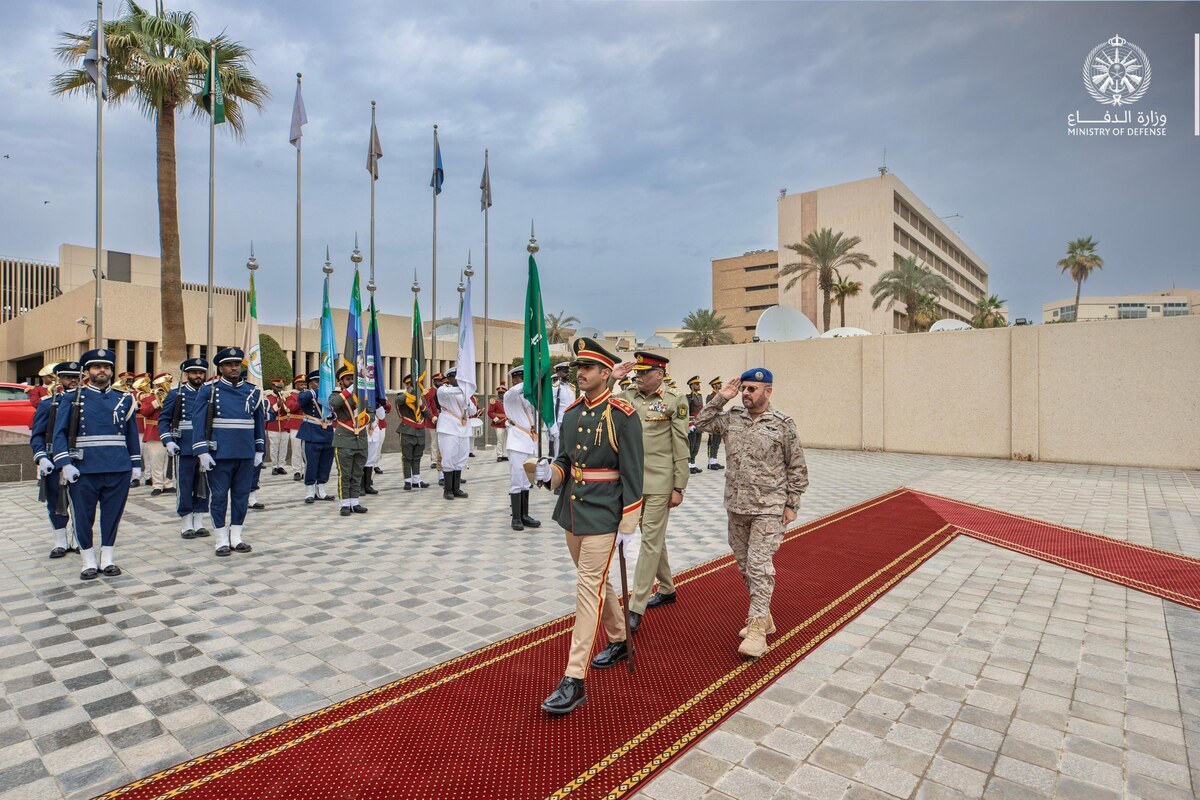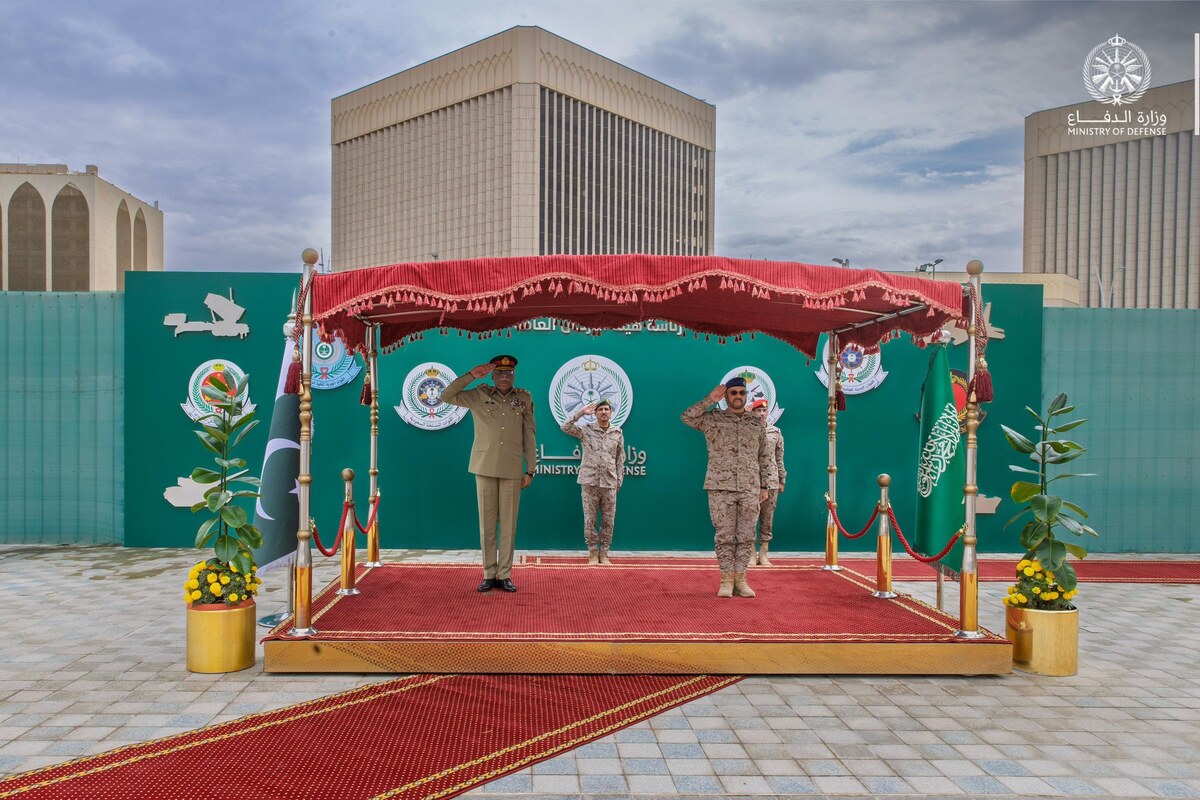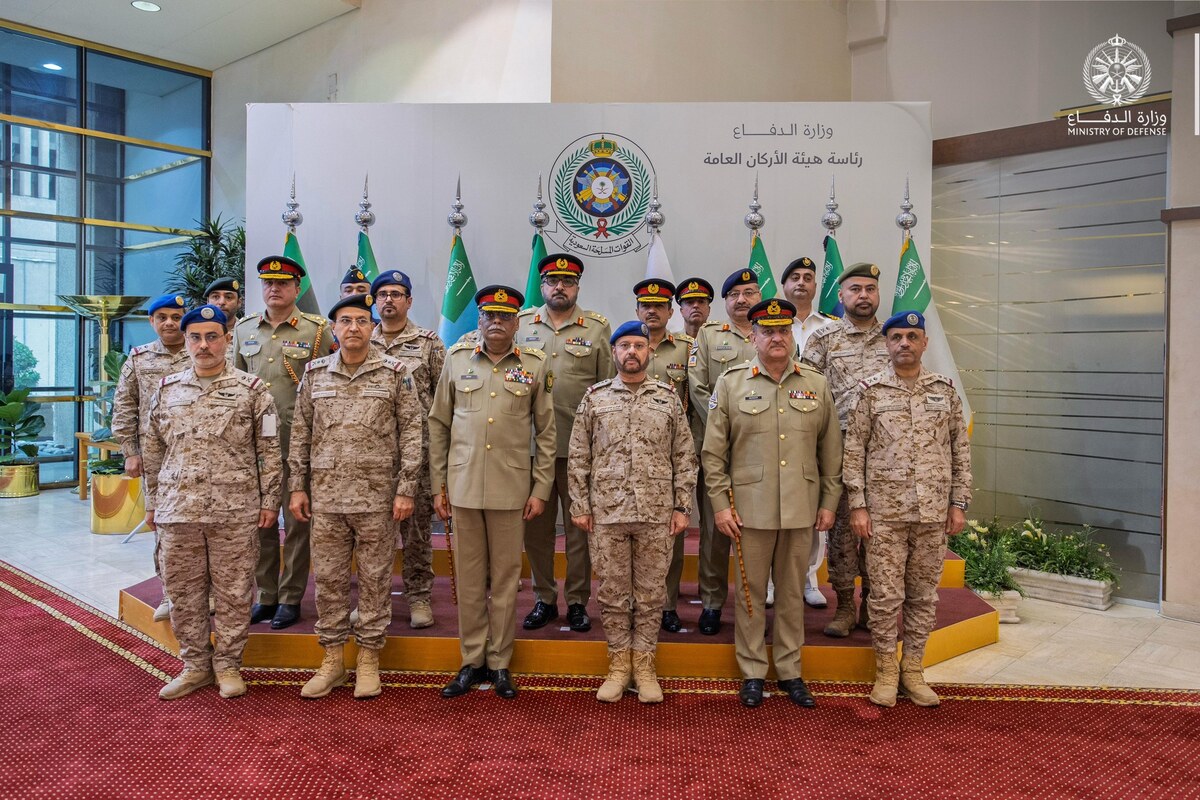ISLAMABAD: Torrential monsoon rains have killed 215 people in Pakistan and injured 405 since July 1, the country’s top disaster management authority said this week, as the South Asian nation braces for more downpours.
Heavy monsoon rains since July have triggered flash floods and landslides in many parts of the country, especially its most populous Punjab and northwestern Khyber Pakhtunkhwa (KP) provinces, which have reported the highest number of casualties.
According to a National Disaster Management Authority (NDMA) report released on Monday, Punjab has reported 86 deaths and 224 injuries from rain-related incidents since July 1. KP has reported 65 deaths and 112 injuries while Sindh has reported 37 deaths and 42 injuries in the same time period. Balochistan has reported 18 deaths and 10 injuries, Gilgit-Baltistan four deaths and one injury while Azad Kashmir has reported five deaths and 15 injuries since July 1.
“Scattered thunderstorm rain of moderate intensity with isolated heavy falls is expected over upper catchments of rivers Kabul, Jhelum and Indus along with Islamabad, Khyber Pakhtunkhwa and Rawalpindi, Sargodha and Gujranwala,” the NDMA said in its situation report.
It also predicted rainfall for Lahore, Multan, Dera Ghazi Khan, Larkana, Sukkur, Hyderabad, Shaheed Benazirabad, Zhob Sibbi, Nasirabad, Loralai, Kalat and Makran divisions on Tuesday.
The NDMA has directed authorities to alert emergency response teams and mobilize resources to ensure a “swift response” to any arising situations. It has also advised tourists to avoid traveling to northern areas susceptible to floods and landslides during the ongoing monsoon season.
Pakistan is recognized as one of the most vulnerable countries to climate change effects. This year, the South Asian country recorded its “wettest April since 1961,” with 59.3 millimeters of rainfall while some areas of the country faced a severe heat wave in May and June.
In 2022, unusually heavy rains triggered flash floods in many parts of Pakistan, killing over 1,700 people, inflicting losses of around $30 billion, and affecting at least 30 million people. Scientists have attributed Pakistan’s erratic weather patterns to climate change effects and called on countries around the world to take urgent steps to tackle the crisis.
Pakistan monsoon rains kill 215 since July — disaster authority
https://arab.news/6dpvm
Pakistan monsoon rains kill 215 since July — disaster authority

- Pakistan’s Punjab reports highest number of casualties, 86, followed by Khyber Pakhtunkhwa with 65 deaths
- Country’s disaster management body warns tourists against unnecessary traveling during ongoing monsoon season
Pakistan’s Khyber Pakhtunkhwa calls for talks with Afghanistan to address militancy

- The provincial administration held a meeting with religious and political leaders to discuss the issue
- Chief Minister Gandapur says a jirga will be formed for result-oriented negotiations with Afghanistan
PESHAWAR: The administration of Pakistan’s militancy-hit northwestern Khyber Pakhtunkhwa (KP) province on Saturday called for government-level negotiations with Afghanistan, announcing that it would constitute a jirga, or a traditional tribal council, to engage with authorities in Kabul, according to an official statement.
The statement followed a consultative meeting convened by the KP administration under the title “National Unity Against Terrorism,” bringing together representatives from various religious and political parties. The discussions come amid a sharp rise in militancy in the region, including suicide bombings, attacks on civilians and security forces and kidnappings of local businessmen and government functionaries.
Pakistan’s top military and political leadership has blamed the surge in violence on Tehreek-e-Taliban Pakistan (TTP) militants launching cross-border attacks from Afghanistan, accusing Kabul’s administration of harboring and facilitating them, though the allegation is denied by the Afghan authorities.
The country’s security forces have also conducted intelligence-based operations against militant hideouts in KP and has reportedly launched airstrikes inside Afghanistan to target TTP militants. However, the consultative session in KP called for a more peaceful approach, seeking the government to engage in constructive talks with Afghan authorities.
“The security situation in our province is directly linked to developments in neighboring Afghanistan,” Chief Minister Ali Amin Gandapur said, according to an official statement circulated after the meeting.
“To find a lasting solution to the issue of terrorism in the country, there is a need for government-level negotiations with Afghanistan,” he added.
“A jirga will be formed to hold meaningful and result-oriented negotiations with Afghanistan,” Gandapur said, referring to the traditional tribal assembly system used for conflict resolution and decision-making in Pashtun-majority areas.
KP’s administration is run by former prime minister Imran Khan’s Pakistan Tehreek-e-Insaf (PTI) party, which has historically advocated negotiations with TTP to resolve militant violence.
The federal government in Islamabad, however, argues that past talks with militants only allowed them to regroup and launch more deadly attacks against Pakistan’s security interests.
Islamabad has repeatedly pressed Kabul to eliminate TTP sanctuaries inside Afghanistan, while the Afghan Taliban have called for dialogue instead of military action.
England opening batsman Ben Duckett fit for Champions Trophy

- Duckett suffered a problem in his left groin during England’s 142-run loss to India on Wednesday
- The injury placed a question mark over the 30-year-old’s availability for the Champions Trophy
LONDON: England’s prospects for the Champions Trophy received a boost on Saturday when opening batsman Ben Duckett was passed fit for the one-day international tournament.
Duckett suffered a problem in his left groin during England’s crushing 142-run loss to India in the third ODI in Ahmedabad on Wednesday.
His injury placed a question mark over the 30-year-old’s availability for the Champions Trophy, which starts in Pakistan next week and features the eight top-ranked ODI teams qualified from the 2023 50-over World Cup.
But the dashing left-hander has now been given the all clear following a scan, with an England and Wales Cricket Board statement saying: “Scans on a left groin injury have confirmed that England Men’s batter Ben Duckett is fit and available for the ICC Champions Trophy.
“Duckett sustained the injury while fielding during the first innings of England’s third ODI defeat to India in Ahmedabad last Wednesday.”
England are set to arrive in Pakistan on Tuesday before they begin their Champions Trophy campaign against oldest rivals Australia in Lahore on Saturday, with all-rounder Jacob Bethell ruled out because of a hamstring injury and replaced by Tom Banton.
Since winning the 2019 World Cup and 2022 T20 World Cup, England have struggled in white-ball cricket with Wednesday’s thumping defeat condemning them to a 3-0 series loss against India in what was Test coach Brendon McCullum’s first ODI campaign since he also took charge of the limited-overs side.
Pakistani and Saudi finance chiefs discuss boosting strategic ties ahead of AlUla conference

- Muhammad Aurangzeb brings up enhanced bilateral trade, investments and collaboration with his counterpart
- The ministers emphasize the need for continued economic dialogue, increased cooperation through joint initiatives
KARACHI: Saudi Arabia and Pakistan on Saturday discussed unlocking the full potential of their strategic relationship, as the finance chiefs of both countries met ahead of the Emerging Markets Conference in AlUla, Saudi Arabia, according to an official statement.
Pakistan’s Finance Minister Muhammad Aurangzeb arrived in the Kingdom to attend the two-day conference, which begins on Sunday, at the invitation of his Saudi counterpart Mohammed Al-Jadaan.
The annual economic policy forum is organized by the Saudi finance ministry in collaboration with the International Monetary Fund (IMF) regional office in Riyadh. The event will bring together emerging market finance ministers, central bank governors, policymakers, public and private sector leaders, international institutions and academics.
“The meeting [between the two finance chiefs] underscored a shared commitment to build bridges of economic cooperation and advance mutual prosperity,” Pakistan’s finance ministry said in a statement after Aurangzeb’s interaction with Al-Jadaan.
“The discussions highlighted opportunities for enhancing bilateral trade, investments and financial collaboration, with both ministers expressing their dedication to unlocking the full potential of their countries’ strategic partnership,” it added.
Pakistan is navigating a fragile economic recovery under a $7 billion IMF loan program secured in September 2024, after implementing austerity measures and policy reforms to avert a sovereign default in 2023.
To facilitate Pakistan’s economic recovery, Saudi Arabia signed 34 memorandums of understanding (MoUs) worth $2.8 billion last October to boost private sector investment in key areas, including energy, infrastructure and technology.
During their meeting, the two ministers explored avenues for collaboration in infrastructure, energy, technology and finance, emphasizing the need for continued dialogue and joint initiatives to facilitate investment flows and economic opportunities that could benefit the broader region.
According to an earlier statement by Pakistan’s finance ministry, Aurangzeb is scheduled to participate in a high-level panel discussion titled “The Path to Emergent Markets,” hosted by IMF Managing Director Kristalina Georgieva.
The conference will feature nine sessions, with 200 participants and 36 speakers, focusing on economic resilience, financial policies for emerging markets and global economic challenges.
The discussions come at a time when the world economy is facing persistent shocks, trade tensions between major world powers, geopolitical instability and tight financial conditions.
“The conference will provide a unique platform for world leaders to discuss and analyze domestic, regional and global economic conditions and developments and to exchange ideas on solutions to global challenges,” the Pakistani finance ministry added.
Pakistan, Saudi military officials agree to deepen defense and security ties

- General Sahir Shamshad Mirza is in Saudi Arabia for the Joint Military Cooperation Committee meeting
- His discussions with Saudi officials focused on military exchange programs, ongoing training initiatives
KARACHI: Senior Pakistani and Saudi military officials have agreed to further consolidate bilateral defense and security cooperation during their meetings in the Kingdom, the Inter-Services Public Relations (ISPR) said in a statement on Saturday.
Pakistan’s Chairman Joint Chiefs of Staff Committee General Sahir Shamshad Mirza is currently visiting Saudi Arabia to attend the 8th round of the Pakistan-Saudi Joint Military Cooperation Committee (JMCC) meeting.
The Kingdom remains one of Pakistan’s key defense and security allies, with ties encompassing a range of activities, including counterterrorism collaboration.
“Both sides reviewed the ongoing cooperation between Armed Forces of Pakistan and Saudi Arabia, focusing on mutual exchange programs, training initiatives and other defense-related activities,” the ISPR said.

“The military leadership reaffirmed their commitment for further strengthening existing defense and security cooperation between the two brotherly countries,” it added.
During his visit, General Mirza held meetings with Major General Talal Bin Abdullah Al-Otaibi, Assistant Minister of Defense, and General Fayyadh bin Hamed Al-Ruwaili, Chief of General Staff of Saudi Arabia.

Their discussions covered strategic and security issues, the evolving regional environment and bilateral defense collaboration.
The JMCC meeting, which Mirza and Al-Ruwaili co-chaired, serves as a key platform for defense dialogue and coordination between the two nations.

The ISPR said Saudi military officials praised the professionalism of Pakistan’s armed forces and acknowledged their sacrifices in the fight against militancy.
Upon his arrival at the Armed Forces Headquarters in Saudi Arabia, General Mirza was given a Guard of Honor by a smartly turned-out military contingent, reflecting the strong defense ties between the two nations.

Pakistan’s interior minister calls for global unity against militant violence in meeting with US envoy

- Mohsin Naqvi expresses optimism that Pakistan-US ties will strengthen under President Donald Trump
- His recent meetings with US lawmakers focused on combating militancy, strengthening bilateral ties
ISLAMABAD: Pakistan’s Interior Minister Mohsin Naqvi on Saturday described militant violence as an international challenge, calling for global solidarity to combat the threat during a meeting with US Chargé d’Affaires Natalie Baker.
Baker assumed the role at the US Embassy in Islamabad in January, following the departure of Ambassador Donald Blome. The position is a temporary appointment, with her responsibilities including engagement with Pakistani officials on bilateral issues until a new envoy is confirmed.
“Terrorism is an international issue, and the global community must work together to address it,” Naqvi said during the meeting.
He also recalled his recent official visit to the United States, which took place earlier this month. The trip focused on bilateral cooperation, counterterrorism strategies and security concerns.
“The meetings with US Congress members were extremely positive,” the minister said. “Discussions focused on developing a joint strategy to combat terrorism and further strengthening bilateral relations.”
Pakistan and the US have historically cooperated on counterterrorism efforts, with both sides benefiting from intelligence-sharing support.
More recently, the US has repeatedly expressed support for Pakistan’s security concerns, particularly as Islamabad blames rising militant violence on cross-border attacks from Afghanistan — an allegation denied by authorities in Kabul.
Naqvi expressed optimism that Pakistan-US relations would strengthen under President Donald Trump’s administration.
He also invited Baker to attend Islamabad’s upcoming spring festival celebrations.










